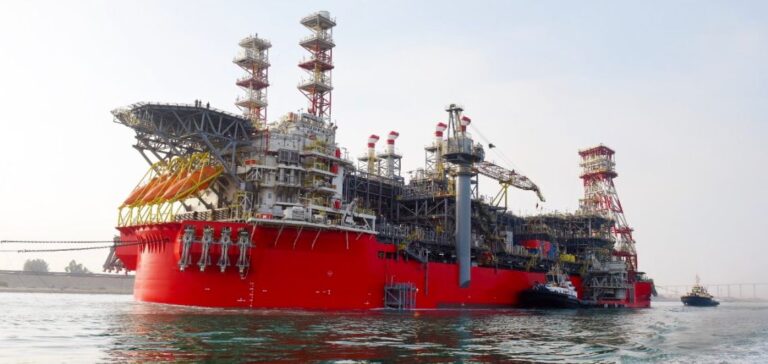Israel will sign on Thursday the agreement on the delimitation of its maritime border with Lebanon, negotiated under the aegis of the United States, Israeli Prime Minister Yair Lapid said Monday.
“On Thursday, we will sign the historic agreement with Lebanon. Israel will become in the near future an important supplier of gas to Europe,” said Lapid during a meeting in Tel Aviv with Dutch Prime Minister Mark Rutte, according to a statement issued by his office.
Press reports indicated a possible signing on Thursday in Naqoura, a city in southern Lebanon bordering Israel where the United Nations Interim Force (UNIFIL) is based.
While Mr. Lapid confirmed the date of Thursday, he did not specify the modalities for signing the text.
After intense indirect negotiations under the aegis of the United States, Israel and Lebanon announced at the beginning of the month that they had reached an agreement to delimit the maritime border between these two neighbors, officially in a state of war, and to remove obstacles to the exploitation of gas deposits in
Eastern Mediterranean.
Under the agreement, the Karish offshore field is located entirely in Israeli waters. Lebanon for its part will have full rights to explore and exploit the Qana field, located further north-east, part of which lies in Israeli territorial waters. But “Israel will be
remunerated” by the firm exploiting Cana “for its rights on possible deposits”, according to the text.
The start-up of the Karish offshore field will enable Israel to increase its gas production and thus boost its pipeline deliveries to Egypt, which will then be liquefied and transported by ship to Europe, which is seeking to diversify its supplies.
For the time being, Israel is exploiting the Tamar and Leviathan fields in the Eastern Mediterranean and has indicated that it wants to start production quickly on the Karish platform.






















